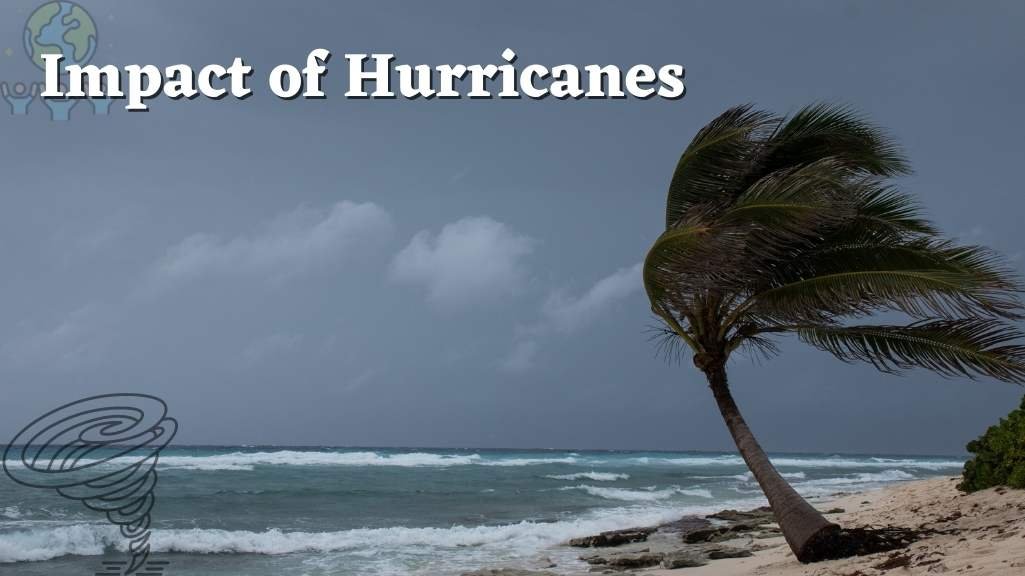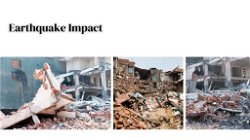Preparing for the Impact of Hurricanes
Alvish Asher
. 2 min read
Hurricanes are low-pressure tropical weather systems that rotate around the equator. Tropical depressions are so-called because their maximum sustained surface winds are lower than 39 miles per hour (mph). Tropical storms are defined as having maximum sustained wind speeds of 39 miles per hour or higher. When the maximum sustained winds of a storm reach 74 miles per hour, meteorologists refer to it as a hurricane.

Understanding and Preparing for the Dangers of Hurricanes
Hurricanes have the potential to cause widespread destruction, and they can have an effect not only on coastal areas but also on areas further inland. Storm surge, high winds, heavy rainfall, inland flooding, tornadoes, and rip currents are some of the dangers that can be caused by hurricanes. Hurricanes, unlike tornadoes and earthquakes, can be predicted several days before they make landfall, giving residents ample time to prepare for the storm and take necessary safety measures.
Evacuation Planning and Safety Measures for Hurricanes
Be prepared for an evacuation by knowing where to go and how to get there; designating a location where family members can meet in the event that they become separated; and deciding on a single point of contact with whom everyone can share their whereabouts and status. Find refuge in a solid structure, and stay away from open spaces, hilltops, the beach, and boats. Sheds and other small structures, open areas, and open water should also be avoided.
Do you live near the coast, either the Gulf or the Atlantic?
You can determine whether or not you live in a hurricane evacuation area by checking the website for the evacuation site, calling the emergency management office of your local government, or contacting the local government office responsible for emergency management. Put together a kit for unexpected circumstances perform a safety check on all of your emergency gear, including flashlights, generators, and shutters.
What Should You Do When There Is a Hurricane?
First and foremost, leave your home immediately if you are told to do so or if you believe that staying there could put your life in danger. If you choose to ride out the storm in your house. Listening to important storm updates, information, and instructions using a portable radio is highly recommended. Remain inside, and maintain a safe distance from any glass doors, windows, or skylights. Get yourself into a secure location, such as an interior room, a closet, or the bathroom on the lower level.
Staying Safe and Prepared During a Power Outage:
In the event that the power goes out, make sure the refrigerator is closed so that the cold air can stay inside and prevent the food inside from going bad. If you use a portable generator, make sure to follow all of the instructions provided by the manufacturer. Immediately Following the hurricane, you should remain indoors until the eye of the storm has completely passed.
Recovering After a Hurricane:
- If the situation is intolerable, you should leave or look for assistance in another location.
- In the event that the President of the United States issues a disaster declaration, FEMA should be contacted as soon as possible.
- When making repairs, only licensed professionals should be used. Be wary of con artists.
- Maintaining your health and safety is of the utmost importance while you clean up after the storm and make any necessary repairs.
- Remove and dispose of debris and damaged or destroyed property in an appropriate manner.
- Mold and mildew growth should be prevented.
More Stories from
Unveiling India's Volcanic Secrets: A Geological Overview
Explore India's unique volcanic history and the enduring forces of nature that continue to captivate scientists and adventurers alike.
Mitigating Earthquake Impact: Strategies for Resilient Communities
This article provides an insightful overview of earthquakes, their causes, and effective strategies for mitigating their impact.
Zero-Waste Living: Practical Tips for Reducing Environmental Impact
Discover the power of zero-waste living as this article offers practical tips and actionable advice for reducing your environmental impact.
Eco-Friendly Practices: How Individuals and Businesses Can Make a Difference
Discover the Power of Eco-Friendly Practices: Learn how individuals and businesses can contribute to a greener world by adopting sustainable measures.
Biotechnology and the Future of Medicine: Advancements and Ethical Concerns
This article explores precision medicine's personalized treatments, the promise and ethical challenges of gene editing, the potential of artificial intelligence in healthcare, and the future of organ transplantation.










.png?width=40&aspect_ratio=1:1)


.png?width=40&aspect_ratio=1:1)